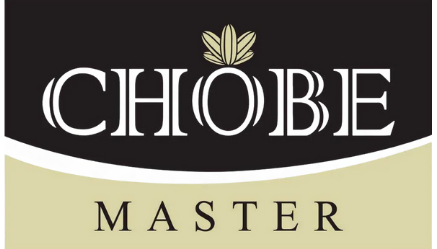
Prebiotics: The New Superfood You Need to Know About
If you're on a quest to boost your belly's well-being, you might consider inviting prebiotics to your dining table. Prebiotics are a special kind of fiber that your body can't fully digest, but the friendly microbes in your gut are big fans. When you consume prebiotics, these microscopic pals feast on them and whip up a substance known as short-chain fatty acids (SCFAs). Think of SCFAs as your gut's little helpers – they're associated with a bunch of health perks like improved gut harmony, weight management, and dialing down inflammation.
Here are a few of the benefits of prebiotics:
- Enhanced Gut Health: Prebiotics play a role in nourishing the friendly microbes residing in your gut. This nurturing can lead to better overall gut health and a lower likelihood of experiencing digestive issues like diarrhea, constipation, and irritable bowel syndrome (IBS).
- Weight Management: Prebiotics can assist in weight management efforts, whether you're aiming to shed pounds or maintain a healthy weight. They achieve this by increasing the sensation of fullness after meals, curbing calorie consumption, and fostering the growth of beneficial gut bacteria.
- Diminished Inflammation: Prebiotics contribute to reducing inflammation throughout your body. This beneficial effect arises from the anti-inflammatory properties of short-chain fatty acids (SCFAs).
- Enhanced Blood Sugar Regulation: In individuals with diabetes, prebiotics can aid in better blood sugar control. They accomplish this by slowing down the digestion of carbohydrates and enhancing sensitivity to insulin.
- Lowered Susceptibility to Chronic Illness: Prebiotics might also reduce the risk of chronic conditions like heart disease, cancer, and Alzheimer's disease. However, further research is necessary to confirm these potential benefits.
Where can you find prebiotics?
Prebiotics are found in a variety of plant foods, including:
- Fruits: Bananas, berries, apples, pears, oranges, and grapefruit
- Vegetables: Onions, garlic, asparagus, artichokes, leeks, and chicory root
- Whole grains: Oats, barley, and rye
- Legumes: Beans, lentils, and peas
- Nuts and seeds: Almonds, walnuts, flaxseeds, and chia seeds
You should know, prebiotics can be found in select supplements. Nonetheless, the optimal choice is to source your nourishment primarily from whole foods whenever you can.
How to add prebiotics to your diet
There are many ways to add prebiotics to your diet. Here are a few tips:
- Begin your morning by enjoying a bowl of hearty oatmeal. Oatmeal holds a wealth of prebiotic fiber, which is great for your gut health. Elevate its nutritional value by garnishing it with a handful of vibrant berries, crunchy nuts, and wholesome seeds. This not only enhances the taste but also boosts your intake of prebiotics and other essential nutrients.
- Enhance the flavor of your culinary creations by incorporating onions and garlic. These kitchen staples are rich in prebiotics, supporting your digestive well-being. Whether you're preparing comforting soups, hearty stews, or flavorful stir-fries, don't forget to toss in some onions and garlic for their valuable prebiotic content.
- During your day, satisfy your hunger with nature's bounty – fruits and vegetables. These fresh delights are natural stores of prebiotics. Grab a handful of juicy berries, crisp carrots, or crunchy celery sticks as a wholesome snack. By doing so, you ensure your daily intake of these vital prebiotic compounds.
- Opt for whole grains over their refined counterparts in your diet. Whole grains, such as whole-wheat bread, pasta, and rice, are rich sources of prebiotic fiber. These not only make your meals heartier but also promote gut health, thanks to their prebiotic goodness.
- Introduce legumes into your regular meals to support your gut health. Legumes like beans, lentils, and peas are packed with prebiotic fiber. Incorporate them into your soups, stews, and salads to enjoy their prebiotic benefits and add a satisfying element to your dishes.
- Elevate the nutritional profile of your meals by sprinkling nuts and seeds. These crunchy delights are abundant in prebiotic fiber. Whether you're garnishing your oatmeal, yogurt, or salads, a generous sprinkling of nuts and seeds not only adds a delightful crunch but also provides an extra dose of prebiotics and essential nutrients to your diet.
Conclusion
Prebiotics, a form of dietary fiber, bring about several positive effects on gut health, weight management, inflammation reduction, and blood sugar regulation. These valuable components are naturally present in a wide range of plant-based foods, including fruits, vegetables, whole grains, legumes, nuts, and seeds. Moreover, prebiotics can also be obtained from select supplements.
Incorporating prebiotics into your diet can be approached in several ways. To start, consider integrating prebiotic-rich foods into your daily meals and snacks. Alternatively, you can experiment with cooking using these ingredients or adding them to your favorite recipes. With some foresight and planning, ensuring you receive your daily dose of prebiotics becomes a straightforward task.



![CHOBE Powdered Yogurt Drink - Mix Berries (25g x 12's) [Free Shaker]](https://www.premiercereal.com/image/cache/data/theme/products/Chobe Yogurt/yogurt-shopee-01_210525135018-100x100_0.jpg)
![CHOBE Powdered Yogurt Drink - Passion Fruit (25g x 12's) [Free Shaker]](https://www.premiercereal.com/image/cache/data/theme/products/Chobe Yogurt/yogurt-shopee-02_210525135051-100x100_0.jpg)
